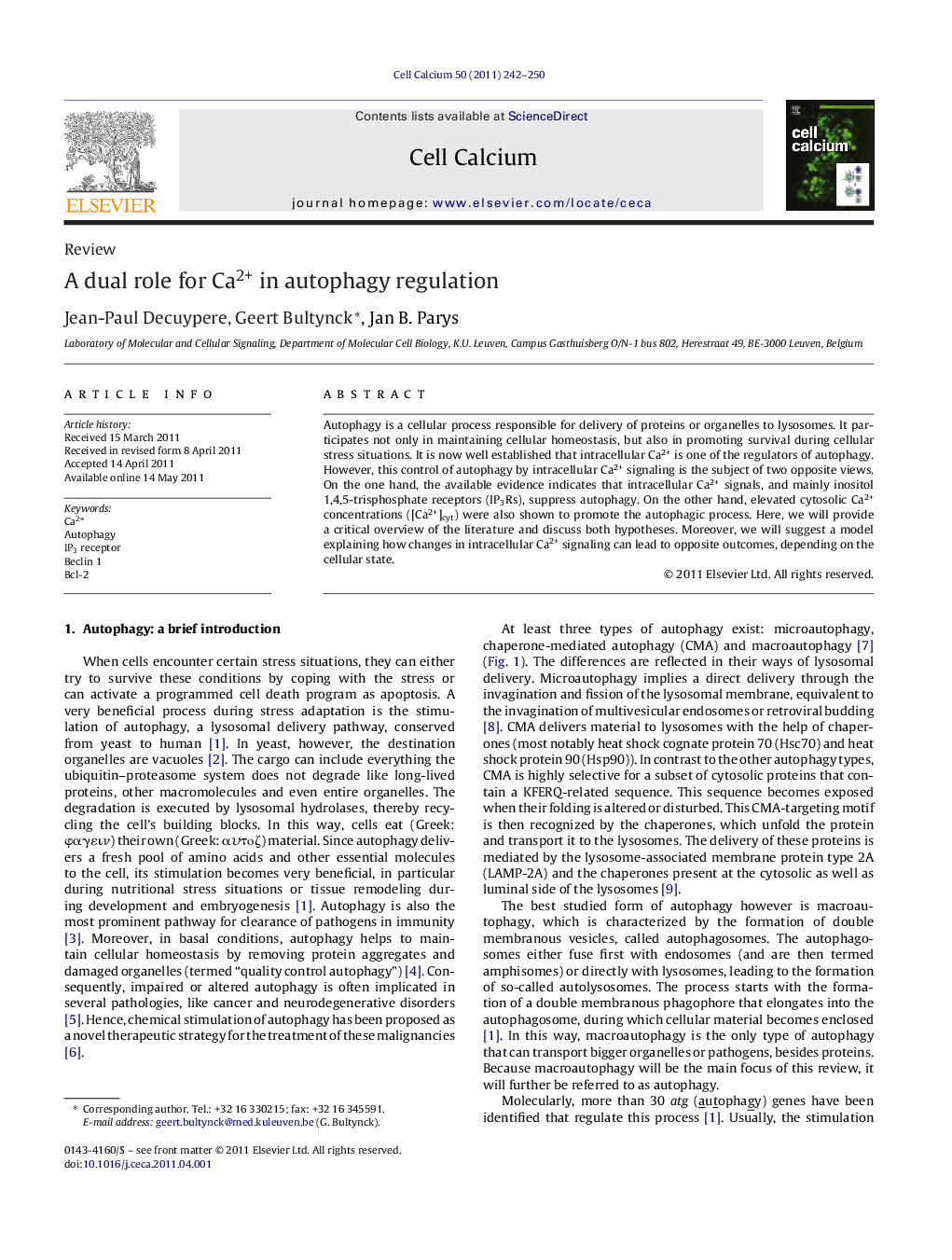| Article ID | Journal | Published Year | Pages | File Type |
|---|---|---|---|---|
| 2166157 | Cell Calcium | 2011 | 9 Pages |
Autophagy is a cellular process responsible for delivery of proteins or organelles to lysosomes. It participates not only in maintaining cellular homeostasis, but also in promoting survival during cellular stress situations. It is now well established that intracellular Ca2+ is one of the regulators of autophagy. However, this control of autophagy by intracellular Ca2+ signaling is the subject of two opposite views. On the one hand, the available evidence indicates that intracellular Ca2+ signals, and mainly inositol 1,4,5-trisphosphate receptors (IP3Rs), suppress autophagy. On the other hand, elevated cytosolic Ca2+ concentrations ([Ca2+]cyt) were also shown to promote the autophagic process. Here, we will provide a critical overview of the literature and discuss both hypotheses. Moreover, we will suggest a model explaining how changes in intracellular Ca2+ signaling can lead to opposite outcomes, depending on the cellular state.
